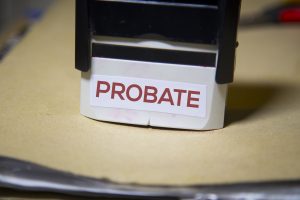6 Common Causes of Probate Disputes


When a loved one dies and they leave behind their assets (or “estate”), we often see problems arise during the probate process. Probate is the legal process in which the deceased’s estate is administered to their debtors, beneficiaries, and their heirs. As probate often involves the decedent’s family and money, the process can be contentious and can cause legal showdowns between the parties involved. With that said, here are some of the most common causes of probate disputes:
1. The Personal Representative/Executor in charge of distributing the estate does not want to be or cannot be in that role
If the decedent left behind a Will, it is the Personal Representative’s (or “Executor’s”) responsibility to locate the decedent’s assets and then distribute them to the people the assets are meant for. Typically, in a Will, individuals are required to name an Executor. If individuals then don’t update their Will or ensure that the named Executor is still okay with being in that role, problems may arise when the time comes. Maybe the person did not understand what duties came with that role, maybe they didn’t know they were named in the Will, maybe that person is unable to fulfill their responsibilities because of an illness or disability. Whatever the reason may be, if the estate needs help dealing with issues related to the Executor role, Justin Stivers and his probate team are ready to help.
2. Allegations of a breach of fiduciary duty
Executors and those who have a role in the probate process have a fiduciary duty (or a legal obligation) to ensure that everything they do serves to carry out the final wishes of the decedent. Sometimes, the Executor may be failing their fiduciary duty or perhaps the beneficiaries suspect some wrongdoing on the Executor’s part. Either way, the beneficiaries of the estate may file to remove that person. The court has the power to remove those who are failing their duties and the beneficiaries may then be able to file a claim for breach of fiduciary duty.
3. A contested Will
Sometimes the decedent may have created a few versions of his or her Will upon remarriage or another life event. Disputes may arise from parties whose inheritance is at stake. It’s important to have an experienced probate attorney by your side if this does happen.
4. Defending against large creditors’ claims
Legitimate creditor claims are typically debts that must be paid before beneficiaries and heirs are given their inheritance. However, beneficiaries and heirs also have the right to make creditors prove that they are owed that much especially if the creditor is making a large claim on the estate. Large claims can also be made by the state as part of recovering some of the money it paid towards Medicaid benefits.
5. Assets in other states
Probate laws are different in each state. Florida has its own statutes about probate that may not necessarily apply to assets found in another state. So, if your loved one has a ski cabin in Colorado and a beach house in Florida, the probate process may involve conflicting laws between the two states. If this is the case, you would definitely need to enlist the help of a probate law attorney who can coordinate with a reliable attorney in the other state.
6. Not hiring an experienced Florida probate law attorney
Don’t entrust your loved one’s estate to just anyone. A lot is at stake, after all. Hire an attorney that’s dedicated to Florida probate laws—one who’s familiar with the court system, the statutes, and the process. While many law firms out there try to practice in as many areas of the law as they can, Stivers Law is dedicated solely to Florida probate law. Contact us today to schedule a consultation or call us at 305-456-3255. Hablamos Español!



